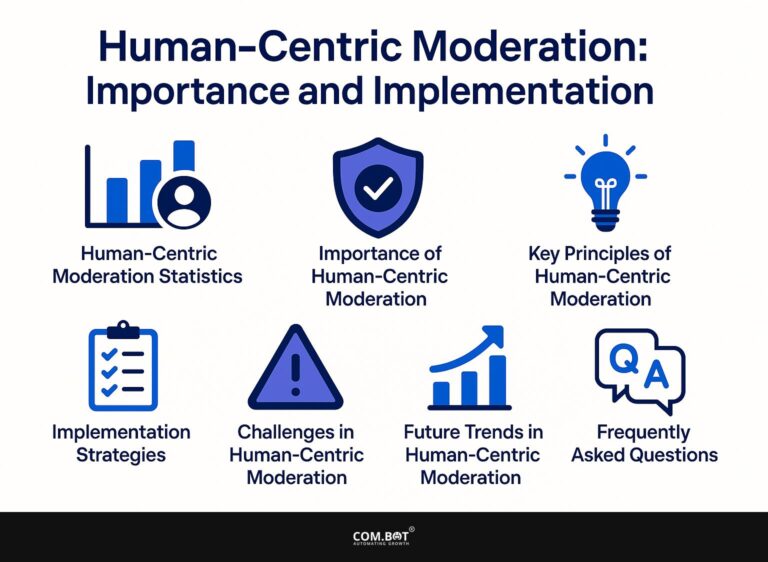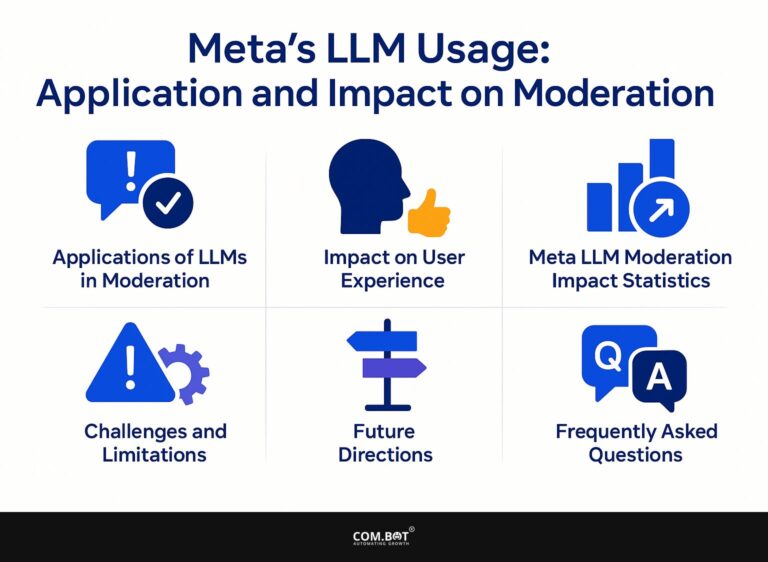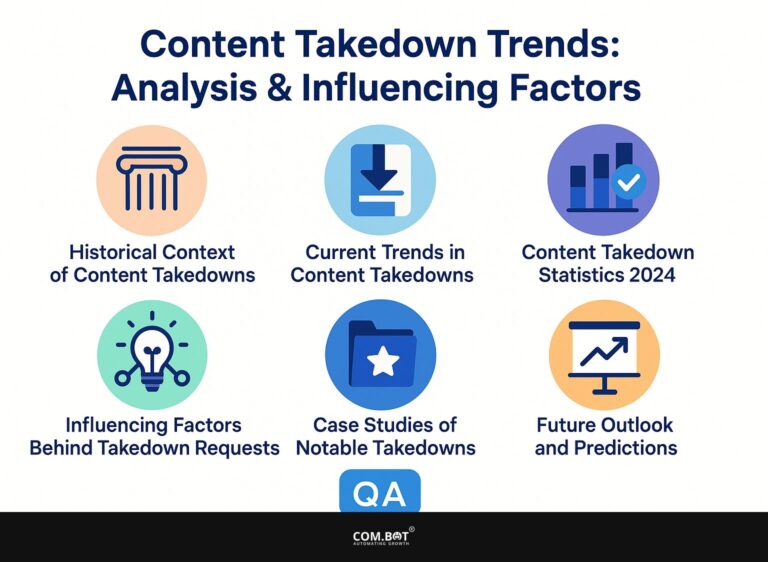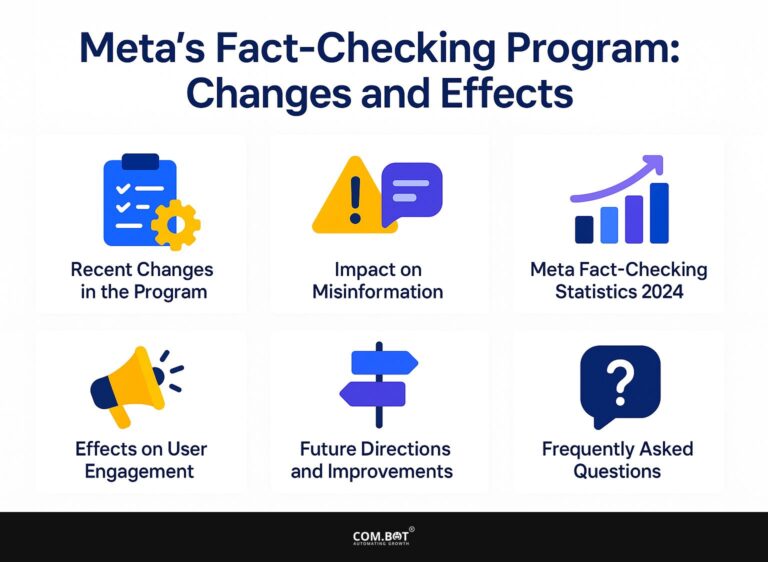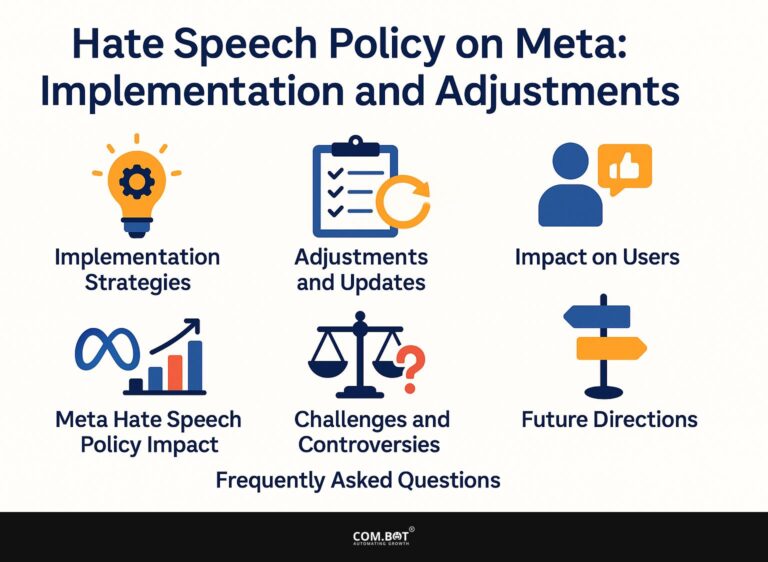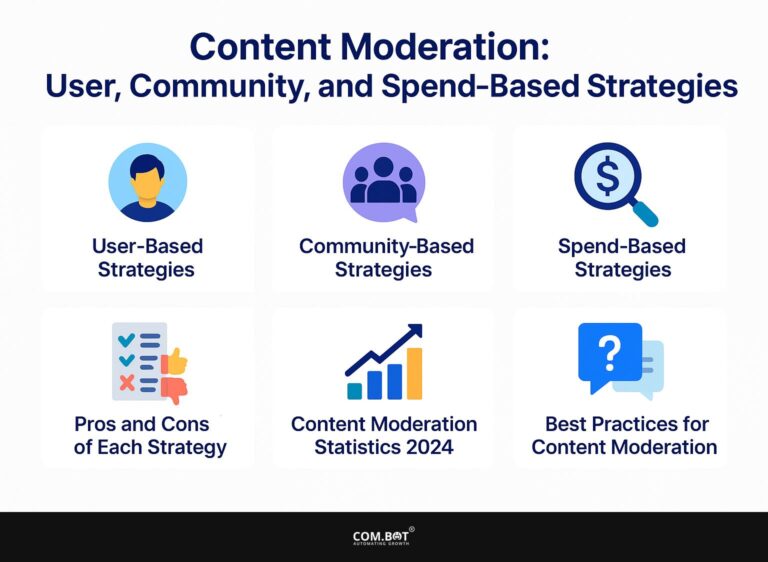Political Pressure: Impact on Content Moderation Decisions
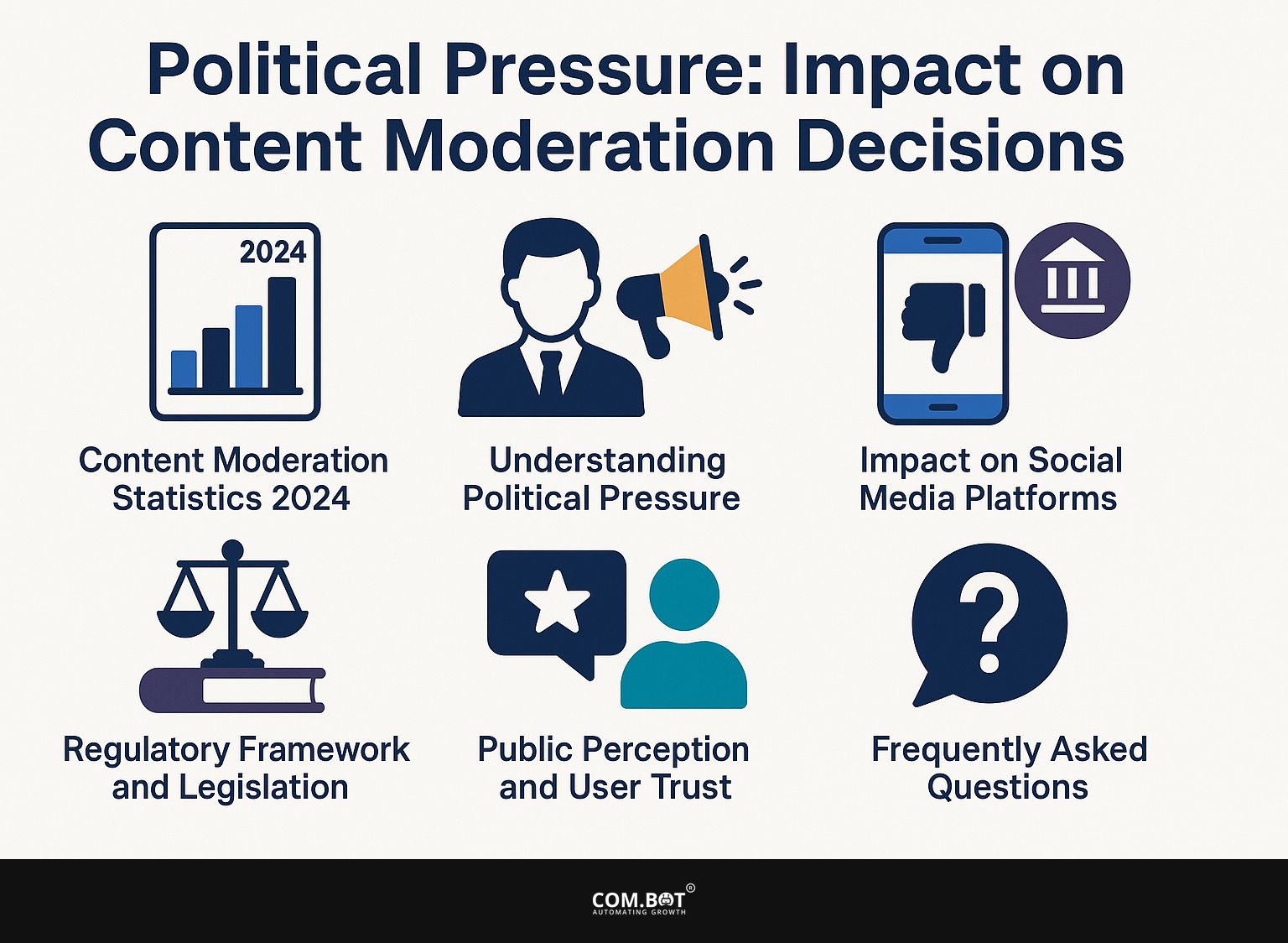
With political influences affecting online spaces, it’s important to know how Meta handles content moderation. From Trump’s return to Twitter to Biden’s concerns over misinformation, the influence of politics on community notes and moderation decisions can’t be overlooked. This article looks into the relationship between political forces and content moderation, showing how these factors impact the effort to combat false information and maintain honest online communities.
Key Takeaways:
- 1 Content Moderation Statistics 2024
- 2 Understanding Political Pressure
- 3 Impact of Political Pressure on Social Media Platforms
- 4 Regulatory Framework and Legislation
- 5 Public Perception and User Trust
- 6 Frequently Asked Questions
- 6.1 What is political pressure and how does it impact content moderation decisions?
- 6.2 Why is it important for content moderation decisions to be free from political pressure?
- 6.3 How can content moderation platforms mitigate the impact of political pressure?
- 6.4 What are the potential consequences of giving in to political pressure in content moderation decisions?
- 6.5 How can users make sure their content is not unfairly controlled because of political influence?
- 6.6 Are content moderation decisions always impacted by political pressure?
Definition and Importance
Content moderation involves watching and controlling posts made by users to keep the community safe and follow the platform’s rules.
Good content moderation is important because it builds trust with users and creates a friendly atmosphere.
AI tools like Microsoft Content Moderator can find harmful content on their own, which makes tasks less challenging for people.
By setting clear community standards and employing a team to review flagged content, platforms can report a 30% decrease in abusive posts.
Regular training sessions for moderators keep them informed about current trends and practices, improving how well they manage discussions.
Overview of Content Moderation Practices
Various platforms use methods such as computer-based filters, user reports, and human reviews to control content.
Tools like Microsoft Content Moderator can quickly identify and delete unsuitable content by following defined rules, making them essential for big platforms.
Reddit’s upvote/downvote system lets users decide which posts become popular and noticeable.
Manual reviews provide detailed, context-aware checks, usually done by experienced moderators. Each method has its strengths: automation for speed, community involvement for engagement, and manual checks for thoroughness.
Combining all three methods can make moderation more effective while ensuring editorial choices remain unbiased. To delve deeper into how these strategies can be implemented, explore our article on Content Moderation: User, Community, and Spend-Based Strategies.
Content Moderation Statistics 2024
Content Moderation Statistics 2024
Content Removal and Moderation: Content Removal on Major Platforms
Content Removal and Moderation: User Support for Content Removal
Content Removal and Moderation: Content Moderation Market
The Content Moderation Statistics 2024 highlights key trends in how major platforms manage harmful content and user support for these actions, alongside the economic growth of the content moderation market. These numbers give a complete overview of how digital content management is changing and highlight the growing need for content moderation to keep online spaces safe.
Content Removal on Major Platforms reveals significant efforts by platforms like Facebook, TikTok, and Reddit. Facebook’s hate speech removal dropped from 31.5 million in Q2 2021 to 18 million in Q2 2023 This suggests either better prevention efforts or new difficulties in spotting hate speech. TikTok’s focus on safety is evident with 30.6% of content removed for minor safety and 27.2% for illegal activities in Q1 2023. Meanwhile, Reddit removed 780,000 subreddits due to spam in 2022, showing its proactive stance against spam to maintain community integrity.
- User Support for Content Removal: In 2022, 63% of U.S. adults supported the removal of hateful content, with 59% endorsing the removal of violent content. These numbers show that most people support strong content rules, highlighting the need for safer online environments.
Content Moderation Market data shows a substantial economic footprint, with the market valued at $7.5 billion in 2024 and projected to grow to $23 billion by 2032. This growth indicates a significant investment in moderation technologies and services as platforms strive to meet public and regulatory expectations for safe online environments.
The Content Moderation Statistics 2024 shows the ongoing problems platforms face in handling harmful content and the growing complexity of moderation methods. As more people support market growth, the content moderation industry is set to grow significantly, influencing digital interactions and creating safer online experiences.
Understanding Political Pressure
Political pressure heavily affects content moderation rules, frequently causing discussions about free speech and how platforms should handle false information. As mentioned, transparency and strategic approaches in content moderation are critical in navigating these challenges and are thoroughly explored in our insights on Content Moderation: Transparency, Challenges, and Strategies.
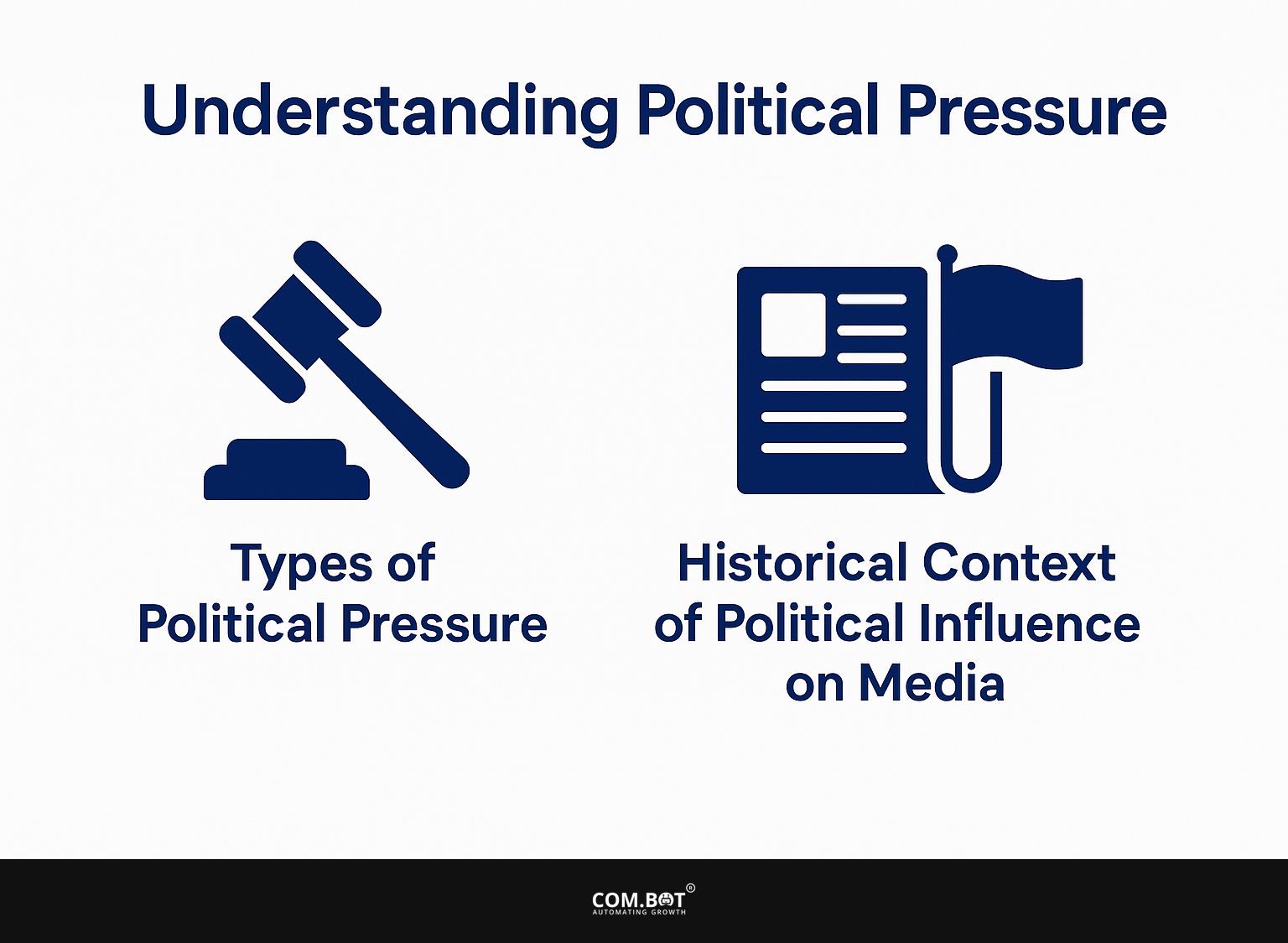
Types of Political Pressure
Political pressure manifests through various channels, including direct demands from government officials, public scrutiny from advocacy groups, and advertiser influence.
In the 2020 U.S. elections, platforms were closely watched, leading Twitter and Facebook to change how they moderate content.
For instance, Twitter implemented fact-checking labels on tweets from political figures to combat misinformation. Similarly, Facebook increased transparency by allowing users to see political ad funding sources.
These changes were made to satisfy government investigations and tackle user worries about false information. This affected user interaction as platforms tried to find a balance between being open and managing content responsibly.
Historical Context of Political Influence on Media
Learning about history shows how politics have shaped media, especially with the growth of online platforms like YouTube and Facebook.
Important moments that influenced content moderation include the January 6 Capitol riots, which led platforms to seriously reconsider their rules. After the riots, Facebook said user trust fell by 28%, showing how quickly people can change their opinion.
The creation of the Disinformation Governance Board was intended to tackle false information actively but faced criticism and was eventually shut down, showing the challenges in managing online speech.
These situations show a larger pattern where trust in platforms changes quickly due to major political events, affecting how content is controlled and distributed. Related insight: Community Notes: Functionality and Influence on Content Accuracy
Impact of Political Pressure on Social Media Platforms
Political pressure strongly influences social media platforms, often causing quick changes in how they manage and regulate content.
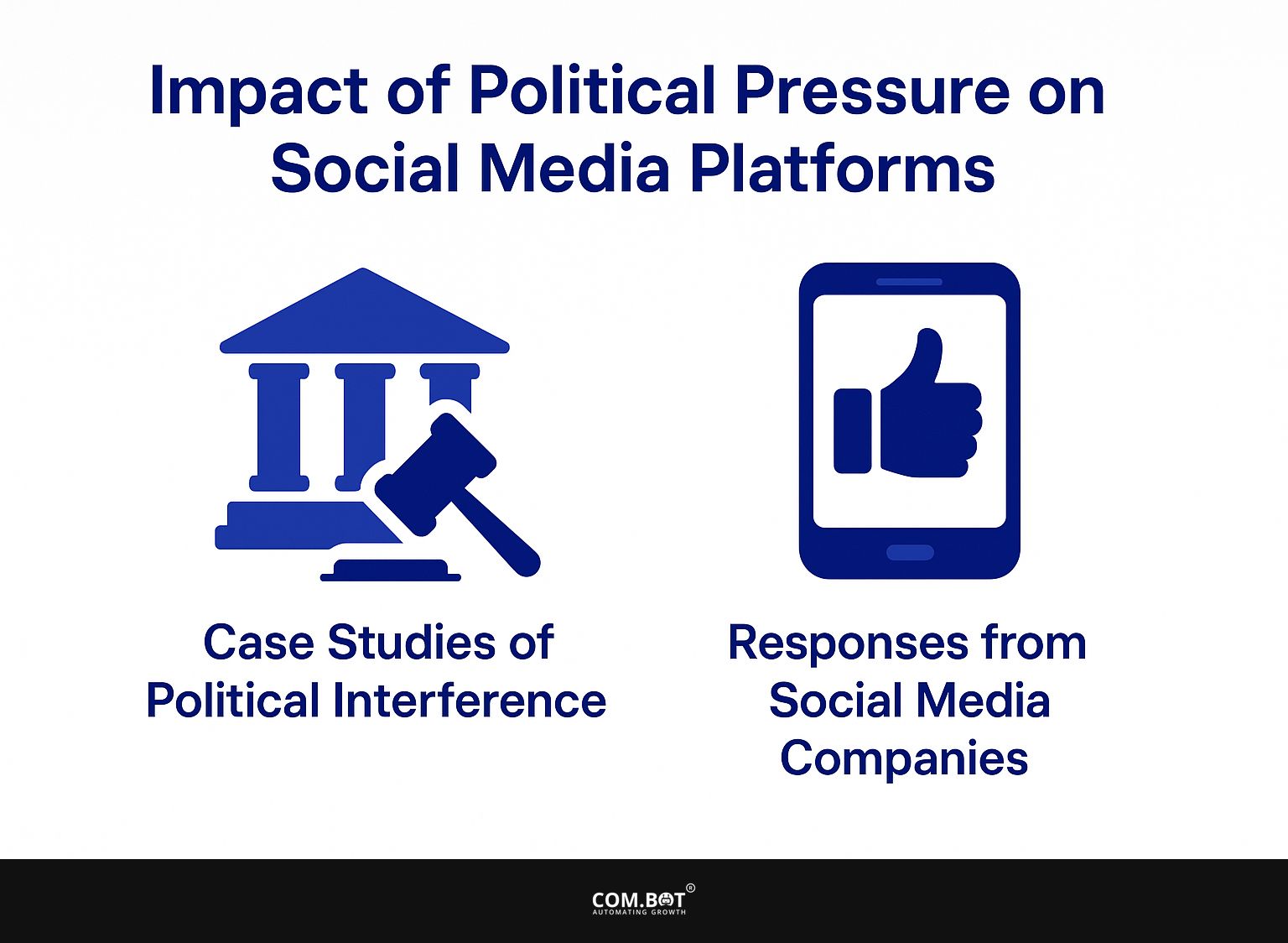
Case Studies of Political Interference
Notable case studies highlight instances of political interference, illustrating the challenges social media platforms face in maintaining neutrality.
A clear example is Twitter’s decision to block Donald Trump in January 2021, sparking a broad discussion about freedom of speech and the duties of online platforms.
Following this, Facebook implemented a temporary suspension, later deciding to uphold the ban for two years.
Engagement metrics revealed a 20% drop in political interactions on Twitter, while Facebook experienced a mixed response, with some users defending the suspension and others claiming it stifled discourse.
These cases highlight the difficult task platforms face in managing public interest while maintaining their brand image.
Responses from Social Media Companies
In response to political pressure, social media companies have implemented various strategies, including updates to content policies and improved transparency measures.
For instance, Meta has increased its transparency reports, now releasing data quarterly that detail content removals and user reports. This shift addresses public concerns about biased moderation practices.
Twitter has improved how users can give feedback, letting them directly report false information and explain its decisions on content moderation.
These actions show the companies’ dedication to being responsible and focus on rebuilding user confidence by promoting honest communication and addressing community issues.
Regulatory Framework and Legislation
The rules for content moderation are always changing, influenced by new laws and the public’s call for responsibility. The ongoing debate surrounding federal content moderation legislation highlights both its potential impact and the complexities involved in shaping these rules.
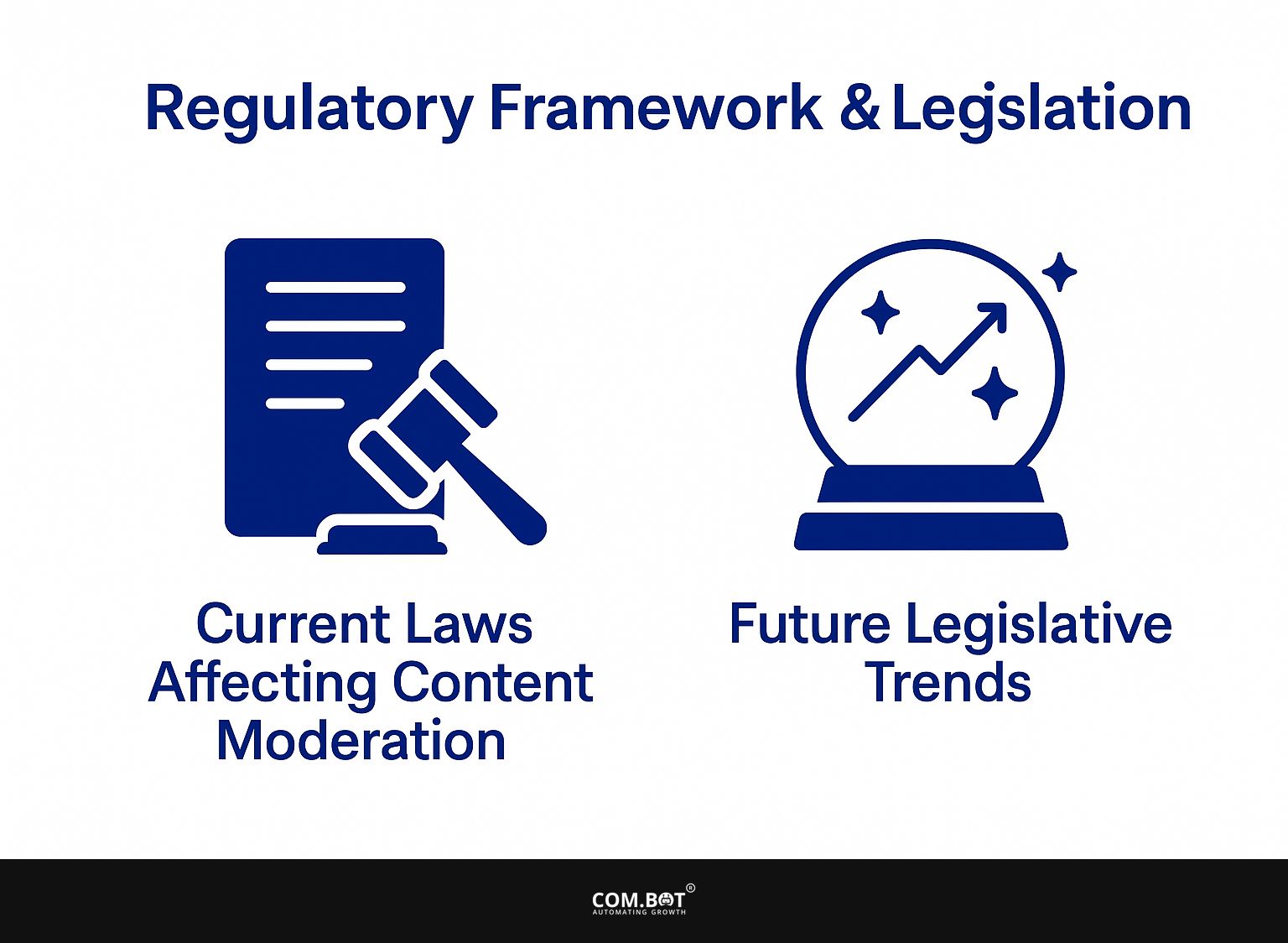
Current Laws Affecting Content Moderation
Current laws like Section 230 provide platforms with immunity from liability for user-generated content while simultaneously complicating their moderation efforts.
This legal system was questioned in the well-known case of Gonzalez v. Plaintiffs claimed that Google should be responsible for algorithms that spread harmful content. The result might change what platforms need to do, highlighting the importance of strong moderation systems.
Recent proposals, like the Online Safety Act, suggest stricter rules that push platforms to be more transparent and improve safety measures for users. This shift could significantly alter user experience, as platforms may need to balance freedom of expression with proactive content monitoring.
Future Legislative Trends
As online environments change, upcoming laws might alter the way platforms handle content moderation during political discussions.
Experts from the Georgetown Center for Business and Public Policy suggest that platforms will need to anticipate regulations focusing on transparency and accountability.
For instance, proposed laws could require social media companies to disclose their algorithms and moderation practices in clearer terms.
Compliance with new privacy standards, like those seen in the EU’s GDPR, may become more commonplace.
Platforms should routinely check their policies and consult with legal experts to quickly handle any new rules or changes.
Public Perception and User Trust
How people view social media sites and their confidence in them are more and more affected by how they see political influence and the ways these sites handle content. This is particularly evident in the context of content moderation practices, as explored in our detailed analysis of transparency, challenges, and strategies for handling online content, which plays a crucial role in shaping public perception.
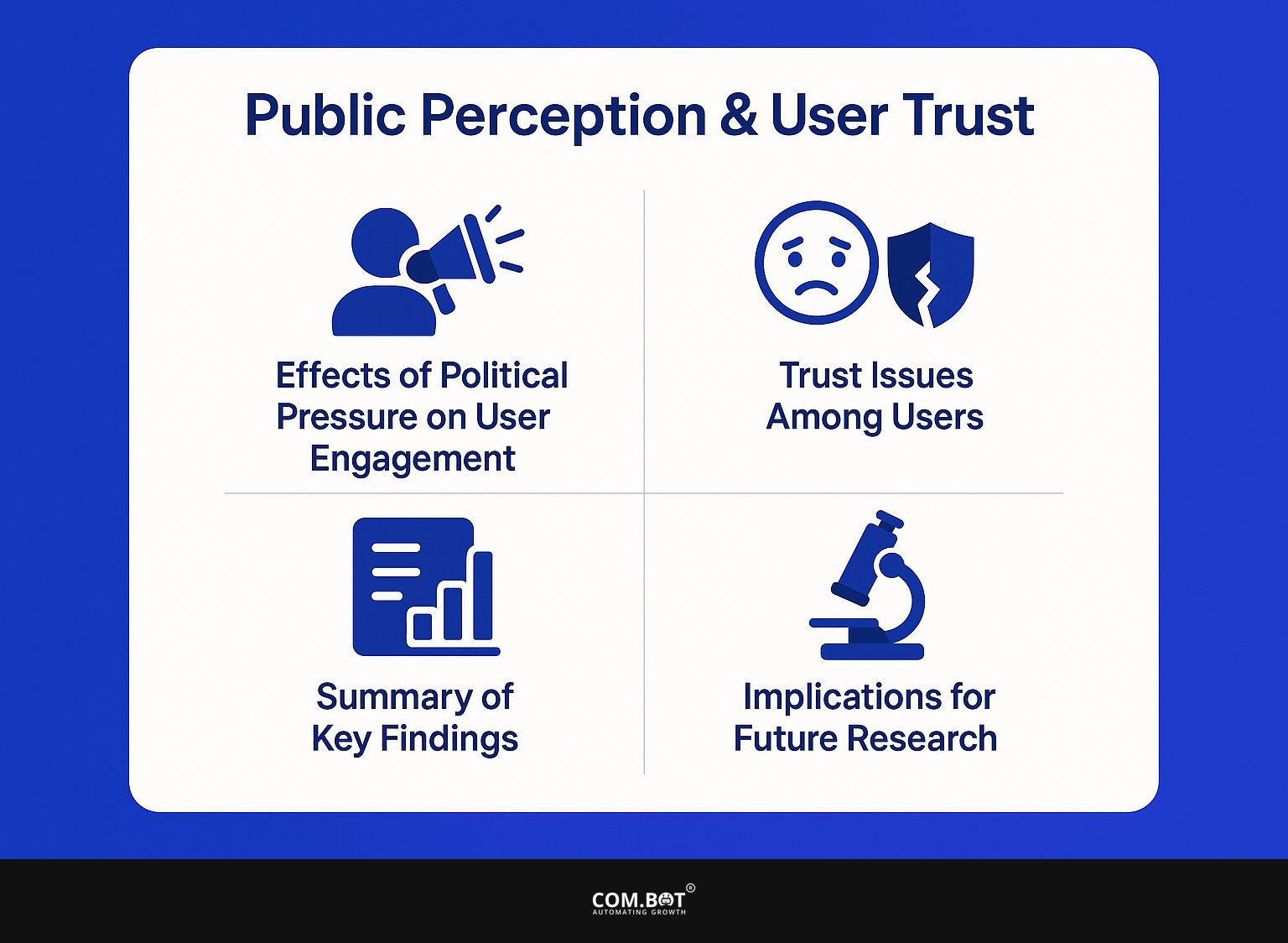
Effects of Political Pressure on User Engagement
Political pressure can significantly affect user engagement, often deterring participation or altering content consumption behaviors.
A study by the Pew Research Center showed that people were less active on social media sites like Facebook after stricter content moderation rules were put in place.
In one case, pages displaying politically sensitive content saw engagement rates fall by up to 40%. Conversely, platforms that maintained a more relaxed approach sometimes experienced spikes in participation, showcasing the delicate balance between moderation and user freedom.
Platforms can use tools like sentiment analysis to understand how users feel about political issues, which can guide their content plans moving forward.
Trust Issues Among Users
Trust issues among users have escalated, particularly regarding the perceived biases in content moderation practices amid political conflict.
A study from the Pew Research Center reveals that 64% of social media users believe platform policies favor certain political viewpoints. This view can result in lower user participation, as seen in examples from Twitter and Facebook where big changes in rules caused noticeable declines in user trust and loyalty.
To address this, platforms should consider transparent moderation policies and provide clearer guidelines on content removal. Using automated systems like moderation bots helps apply rules consistently and reduces human bias.
Summary of Key Findings
The main results show that political influence affects content rules and impacts how users interact with platforms and trust them.
This influence can lead to significant changes in how platforms operate. For instance, when political events escalate, companies like Facebook and Twitter often adjust their content algorithms to limit the reach of certain posts.
To manage this, users should focus on getting news from different places, using tools like Feedly or Pocket for selected articles. Building connections with reliable content creators can improve your ability to understand media and help you think critically about online information.
Listening to different viewpoints helps you understand the problems better.
Implications for Future Research
Research should look into how political influence affects content management and user trust over time.
One way to look into is how political pressure affects community involvement statistics. This could involve analyzing case studies from platforms like Facebook or Twitter during significant political events.
Researchers can use tools like social media analytics (e.g., Hootsuite, Sprout Social) to track changes in how users feel and how much they interact.
Looking into how different countries have handled false information through laws might show how well these rules work for controlling content. This combined method could help explain the factors involved.
Frequently Asked Questions
What is political pressure and how does it impact content moderation decisions?
Political pressure is the influence that people or groups in politics have on how decisions are made. In content moderation, political pressure can change the rules and guidelines for moderating content, possibly resulting in unfair or biased choices.
Why is it important for content moderation decisions to be free from political pressure?
Decisions about content moderation should follow clear and fair guidelines to support free speech. Political pressure can compromise this process and lead to biased or one-sided decisions, potentially silencing certain voices and limiting the diversity of ideas and opinions on a platform.
How can content moderation platforms mitigate the impact of political pressure?
One way to mitigate the impact of political pressure on content moderation decisions is to have clear and transparent guidelines and processes in place. This helps make sure choices are made using steady and fair standards, not influenced by personal or political views.
What are the potential consequences of giving in to political pressure in content moderation decisions?
Giving in to political pressure in content moderation decisions can have serious consequences, such as limiting free speech and promoting censorship. It can also damage the credibility and trust of the platform, as users may perceive the decisions to be biased and unfair.
How can users make sure their content is not unfairly controlled because of political influence?
Users can learn about the platform’s content rules and how they are applied. They can also report any signs of bias or political influence in decisions. They can also push for openness and responsibility in content moderation, and back platforms that focus on free speech and fair decision-making.
Are content moderation decisions always impacted by political pressure?
No, content moderation decisions are not always impacted by political pressure. Many platforms follow strict rules and procedures to make sure decisions are fair and based on clear standards. However, users should know that political influence can affect content moderation, and they should support honest and open moderation rules.
